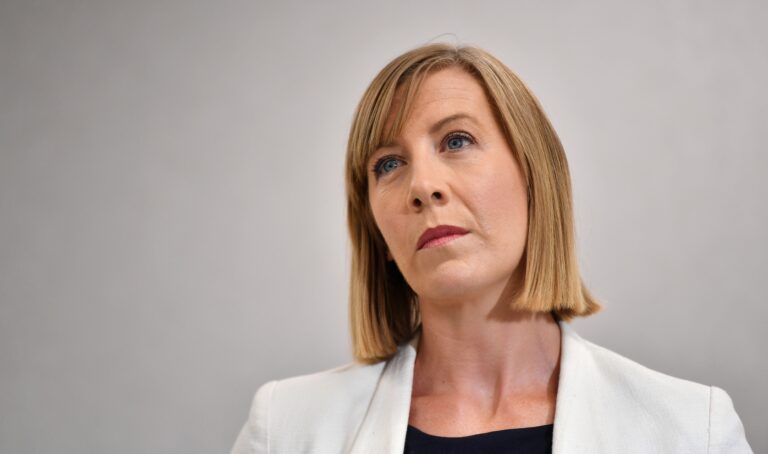
Locals frustrated with subpar internet
BY CHRISTOPHER HARRIS
There is growing concern about the ability of the copper network to acceptably house the National Broadband Network.
The area around the inner city is one of the last places in the country where the NBN will be delivered, but the severely damaged state of the existing copper network has locals worried that it will be a fruitless exercise.
A combination of the high density of residents, and the age of the copper network have lead some locals to believe that the NBN will not increase internet speeds.
Last week City Hub reported on similar problems with the copper network as the NBN was rolled out in the suburbs of Newcastle. The suburb of Mayfield had received the NBN a couple of years prior, under Labor’s Fibre to the Premises connection.
Federal Member for Sydney Tanya Plibersek told City Hub it was difficult to believe in the largest city in the country, many people couldn’t get a decent internet connection.
“It is extraordinary that Malcolm Turnbull, who likes people to think that he invented the internet, has got it so very wrong on the NBN.”
“The whole thing will cost more, the whole project has blown out in delivery time, the internet itself will be slower and more expensive.”
“I think people are really angry about it for a few reasons. First of all, so much business and entertainment relies on good internet connection.”
“When the internet goes down, or the speeds are very slow, it really affects their capacity to make a living.”
“When he took over he said it would cost $28.5 billion; it is actually going to cost $56 billion, on the most recent projections, he said the whole country would be hooked up by the end of 2016, the end of this year, there is no way that would happen – they have now revised that till 2020 and I would be frankly surprised at the rate it is going if it will be done by 2020, the connections will be slower and more expensive.”
The NBN is set to become an election issue this year, with a seeming unending tirade of complaints on social media about the speed of the supposedly faster NBN.
Co convenor of Alexandria Residents Action Group Ben Aveling said that internet service in the suburb had not been up to scratch for some time.
He said that one of the main reasons people had experienced difficulty was the fact that the copper wires in the ground were old because they dated from when the area received phone lines in the middle of last century.
To receive internet, residents must be able to get a “copper pair” to the home. With the suburb becoming increasingly dense, more apartments being built, and more people signing up to internet services, the task of finding a copper pair has become increasingly difficult.
“The copper is deteriorated, it is getting denser, its gets harder and harder to find good copper,” Mr Aveling said.
He said the increase in internet traffic could also be responsible for slow internet speeds.
“A bad join, a bad wire, can reduce the quality of connection. The more noise there is, the slower it has to run. It is like having a good road versus a dirt road. You have slow down.”
He said that the distance from the exchange, a cylindrical casement with a dome top, can affect the speed.
“Distance matters too, the further you are from the exchange, the slower your connection is going to be. Even on a good wire, you’ll get a faster connection over a short distance.
While the NBN is not expected to arrive until 2017, residents in Alexandria are frustrated that they will be getting a replacement copper network that has caused so many problems.
Another resident told City Hub he had been talking with Telcos for the past three years about his internet and the state of the copper network in Alexandria. He said the pits (trenches in the ground which house the copper wires) had been “degraded substantially”.
He said this was due to the pit covers being broken, the movement of tree roots, as well as water and soil getting into the pits. He said that changes to the wires had a big impact on other residents. At one stage, after experiencing internet speeds of 0.05mb per second, he discovered a neighbour further down the road had installed new internet. He said other times the internet had simply dropped out due to unknown complications with the copper network.
Maintenance on the network is not always done by telecommunications companies. Maintenance is outsourced to third parties, who don’t know the history of the local network. Thre resident said he believed this was what caused so many outages as so many people have been tinkering with the network.
Instead of upgrading the copper network before installing the NBN, some residents believe it would be more cost effective to install a fibre to the premises connection.
Ben Aveling said he believed that it would cost about $200 more per person to install fibre rather than copper.
A spokesperson for the NBN said the rollout allowed the company to deliver “fast broadband in a timely and cost effective manner.”
“This involves using and upgrading existing infrastructure where it makes sense to do so.
“The government has asked nbn to use this approach to provide a minimum 25 Mbps to all homes and businesses and at least 50 Mbps to 90 per cent of the premises in the fixed-line footprint. If the current condition of the infrastructure means that we cannot achieve these speeds, we will carry out remediation works or employ a different technology.









